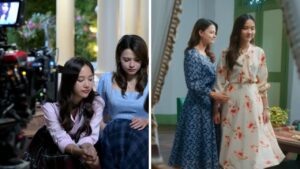GL tropes reviewed takes a closer look at something many fans already feel. Some tropes in GL dramas are starting to feel outdated. What once seemed romantic or exciting now often feels overused, unrealistic, or even harmful.
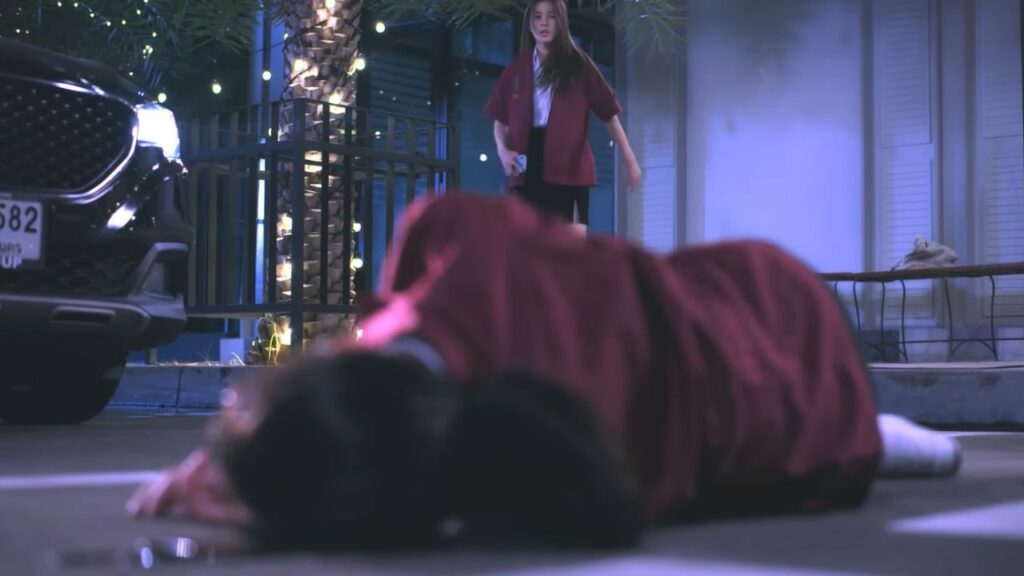
To start, one clear example is the miscommunication trope. How many times do we see a couple break up just because they avoid a simple conversation? These moments rarely explore real emotional issues. Instead, they push the story toward a predictable breakup and reunion.
Another problem is the redeemed homophobic parent storyline. While many hope for family acceptance, these sudden turnarounds often feel forced. In real life, not everyone gets that resolution.
When stories rely too much on this trope, they send a message that queer love only matters if it’s approved. We need more stories where love stays strong, even without validation.
Then there’s the troubling trend of inebriated consent shown as romantic. This is never okay. Yet, it still appears in Thai GL dramas. It’s time for more respectful and honest portrayals of intimacy.
Other tired tropes, like forced love triangles or overly immature characters, also weaken the emotional impact. They make it harder for viewers to connect or take the drama seriously.
But GL Tropes Review isn’t here to blame. It’s about growth. Thai GLs have made real progress, and that deserves recognition. Still, fans want more. We want stories that reflect the real struggles, joys, and complexity of sapphic lives.
The genre is expanding, and so is its audience. This is the perfect time for Thai GLs to evolve, and fans are more than ready for what comes next.
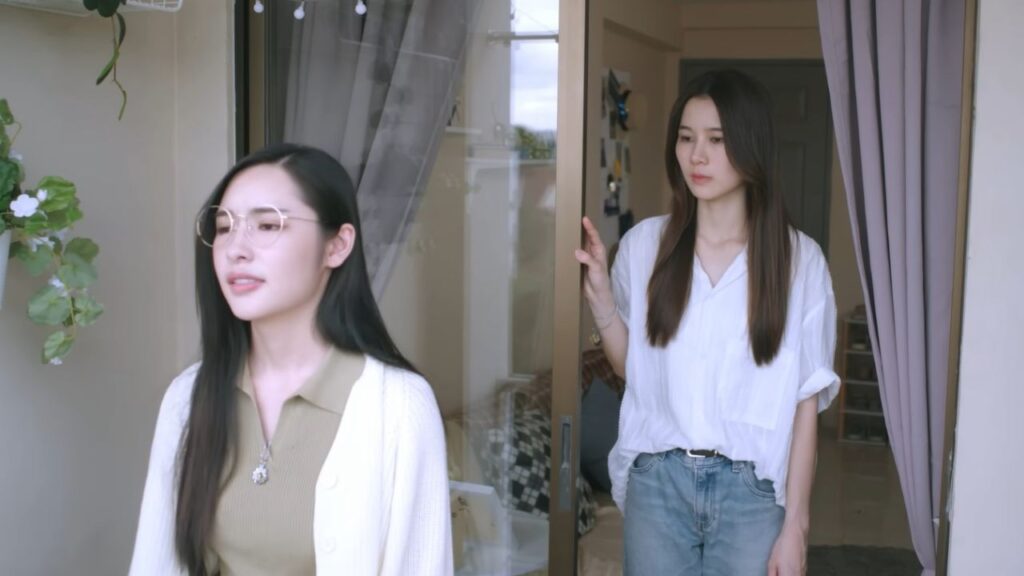
Table of Contents
The Endless Loop: Why Are We Still Here?
GL Tropes Review shows us there is a fine line between a beloved trope and a tired formula. Tropes like the childhood crush turned lover, the drunken kiss leading to sex, or the misunderstanding lasting five episodes are starting to feel like obstacles instead of meaningful story tools. What once created tension now feels predictable and like filler.
Even worse, many Thai GL dramas rely on easy conflict shortcuts. A car accident, a sudden illness, or a breakup caused by family disapproval often appear not to deepen the story, but just to pause the romance. Then, a few episodes later, everything returns to normal.
So, we have to ask: are these really the only ways sapphic love stories can move forward? Do we need another plot where a character almost marries a man before realizing she loves a woman? The answer is clear. Fans want better writing, stronger character growth, and real stakes.
Discussions in GL Tropes Review reveal that what’s missing is not drama but authenticity. Real queer relationships have complexity that doesn’t rely on amnesia, forced separations, or external saviors.
If Thai GL dramas want to grow, they must move beyond these recycled stories. It’s time to break the loop and make room for new stories that show the true emotions, choices, and power of queer women’s lives.
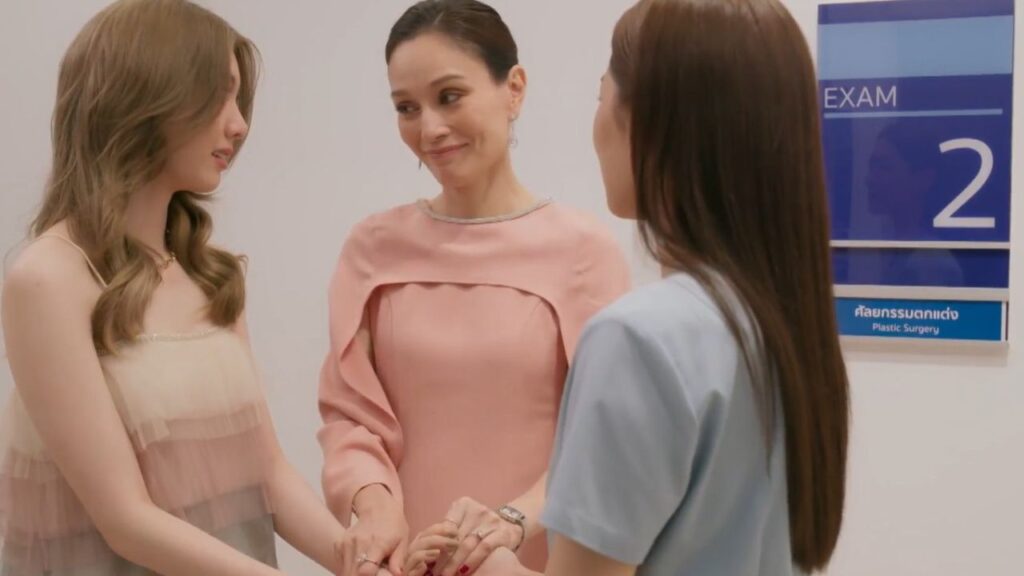
The Problem with Redemption-Only Endings
Do all homophobic parents need to suddenly change for a queer couple to find happiness? According to many Thai GL dramas, the answer seems to be yes. These stories often suggest that family acceptance is the only path to a happy ending. But that idea feels overused and far from many people’s real lives.
In reality, prejudice does not always disappear. Parents and grandparents rarely change overnight. Yet, again and again, we see fast redemption arcs, usually squeezed into the final episodes, as if that’s the only way to close the story. But what if the goal wasn’t approval?
Instead of always chasing acceptance, we need more stories where queer characters choose themselves. What if the main character stood by her love without needing permission from anyone? That would offer a different kind of happy ending, one that feels more real and just as hopeful.
When looking at recent GL tropes reviewed by fans and critics, one clear message stands out: we want agency. Stories lose power when characters wait passively for approval. But when they move forward despite rejection, the narrative gains strength, honesty, and emotional depth.
Thai GL dramas can grow by exploring these stories. It’s time to shift the focus. Let’s stop centering the reformed bigot. Let’s start giving more space to resilient sapphics who define happiness on their own terms.
Sometimes, the most powerful thing a character can do is say, “No, I don’t need your approval to live my truth.”
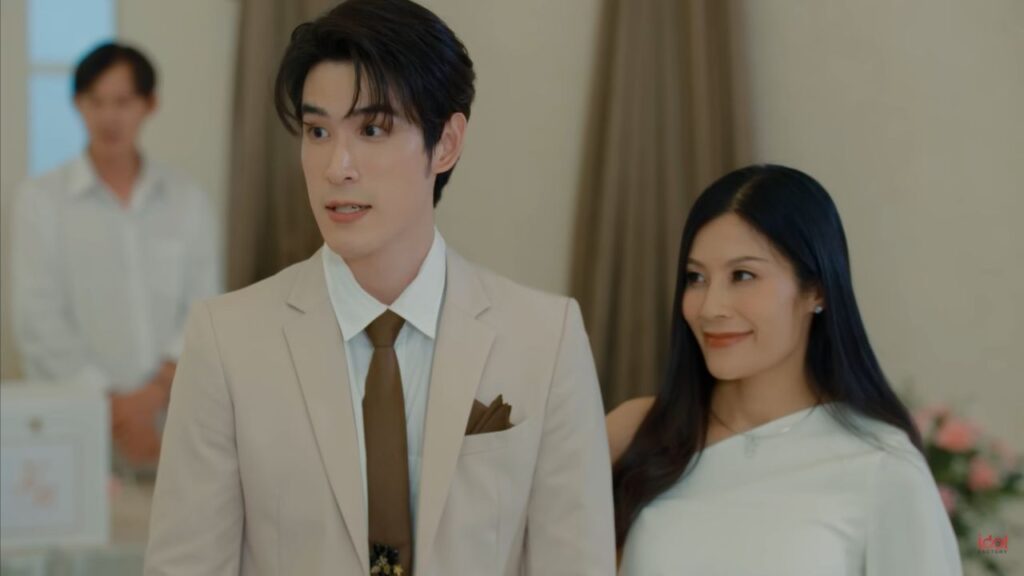
Not Every Conflict Needs a Man
Many viewers are tired of seeing men used as unnecessary plot devices in Thai GL dramas. Whether it’s a fiancé, an ex-boyfriend, or a so-called charming savior, male characters often appear in stories that should focus on queer women. This pattern raises an important question: why are men still involved at all?
In sapphic stories, emotional depth should come from the relationship between the women. The tension, growth, and conflict should come from their identities, desires, and the real-life challenges they face. Adding men as obstacles or helpers shifts the focus and weakens the story’s emotional truth.
Often, their presence feels like an outdated tool instead of a needed part of the plot. It brings back heteronormative patterns in a space meant to celebrate queerness. These stories deserve better.
That is why we need more stories that focus on female strength, mutual care, and honest communication. These plots should stand on their own without relying on male involvement. When conflict comes from the couple’s personal struggles or their social environment, the story feels more honest and powerful.
By letting go of this overused trope, Thai GL dramas can offer deeper and more meaningful narratives. The audience is ready for sapphic relationships that grow, evolve, and challenge us without needing men to shape the outcome.
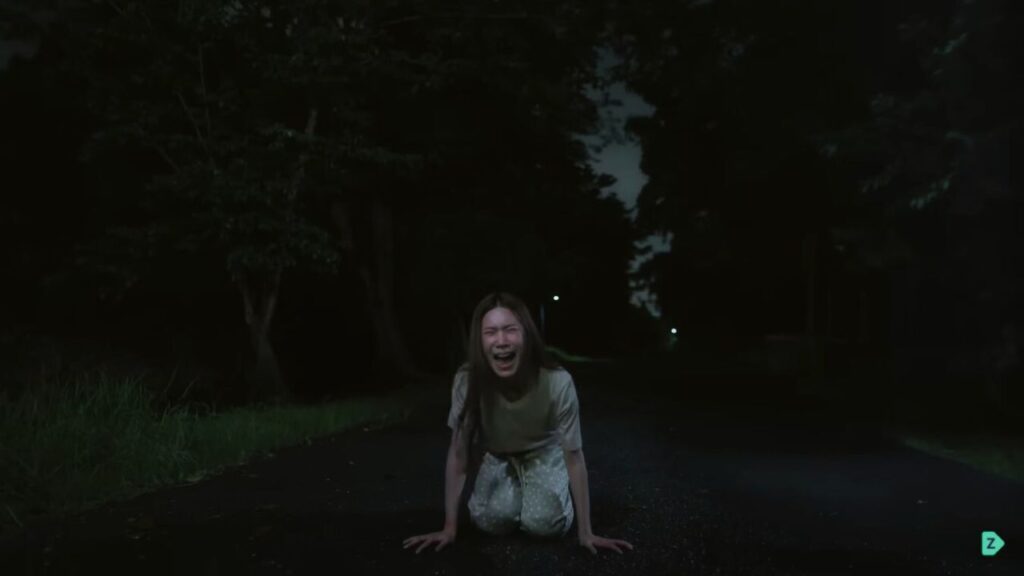
Tears, Tantrums, and Too Much Drama
It’s hard to ignore how often GL dramas fall into a cycle of strong emotions and constant miscommunication. Characters cry a lot, shout at each other, or throw dramatic tantrums. Somehow, these extreme reactions become the main way conflicts are shown. It feels like the drama itself becomes the main character, instead of the relationship.
Many fans talking about GL tropes have shared their frustration with this pattern. Why does every argument turn into tears or silence? Where are the couples who face problems with honesty and maturity? Real relationships grow through patience, communication, and understanding, not just emotional outbursts to create tension.
Sometimes, stories make one character too naive while the other feels distant or unavailable. This creates a tiring cycle where progress only happens after a big crisis or sudden change of heart. It feels repetitive and worn out. The idea that every problem must end with a tantrum or long silence is a GL trope begging to be retired.
What audiences really want are healthy relationship stories. They want characters who sit down, talk openly, and solve problems with care. Drama is important, but it should not cover up the growth and connection between people.
By rethinking how emotional conflict works in GL dramas, creators can bring something fresh and satisfying. GL Tropes Review shows us that love does not have to come with endless tears. Instead, it can be a source of strength, clarity, and healing.
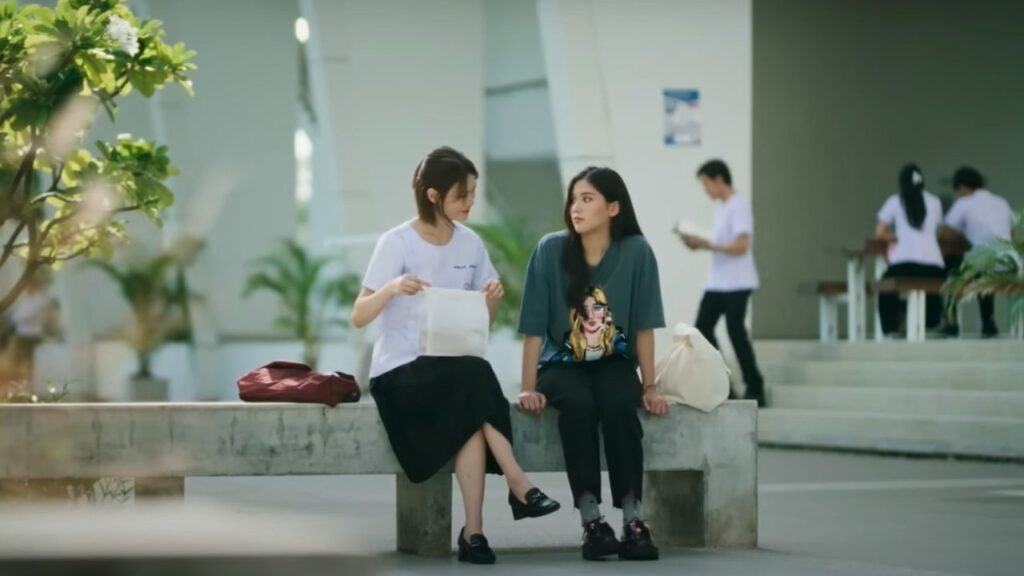
GL Tropes Reviewed: What We Want More Of
When we look at what truly excites fans, one thing stands out: a strong desire for real and honest storytelling in GL dramas. Conversations about GL tropes often show how much audiences want healthy sapphic communication that feels mature and genuine.
Fans want stories where characters openly share their feelings, handle conflicts with respect, and build relationships based on trust and understanding.
Beyond just romance, viewers also want to see messy but real queer friendships. These friendships reflect the diversity and complexity of queer communities and add depth to the stories.
Friendships that support and challenge the characters, growing alongside their romances, deserve more attention. These connections bring realism and broaden the representation of queer lives on screen.
We also need to see better portrayals of femme-femme couples. Instead of the usual oversexualized images, fans want to see femmes who are fully realized, with their own ambitions, desires, and strength beyond just attraction.
At the same time, the call for butch leads who break stereotypes is growing louder. These characters should show real strength and vulnerability without falling into clichés.
Finally, many fans want GL dramas to explore bigger themes like politics, community support, and mental health. Stories that go beyond love, exploring the wider queer experience, offer fresh and meaningful narratives.
This change promises a richer and more diverse world in GL dramas, one that respects the true complexity of love and life.

Representation that Reflects Reality
Representation in GL dramas is a hot topic among fans and critics. When we discuss GL tropes, one clear problem is the lack of diversity that truly shows the variety within the queer community.
Too often, the focus is only on young, conventionally attractive femmes. This leaves out many different identities and experiences.
It is time to include diverse bodies, with characters of all shapes, sizes, and abilities. This kind of inclusion helps viewers feel seen and valued. Also, trans characters need to have more than just small or token roles. Stories should put trans sapphic women at the center of meaningful plots.
Older sapphic women deserve attention too. Their stories, full of experience, strength, and wisdom, add depth to GL dramas. Instead of making them side characters or stereotypes, these women should be fully developed main characters. This challenges the common focus on youth in many shows.
Real representation means creating stories with complex, relatable characters who reflect the diversity of real life. It means moving away from polished perfection toward true authenticity. Fans want stories where characters’ identities, struggles, and joys show a wider queer reality.
By telling stories with this inclusive view, creators can raise GL dramas above clichés and shallow portrayals. This is the future many fans want, a world where every viewer finds a character like themselves and a story that feels true.
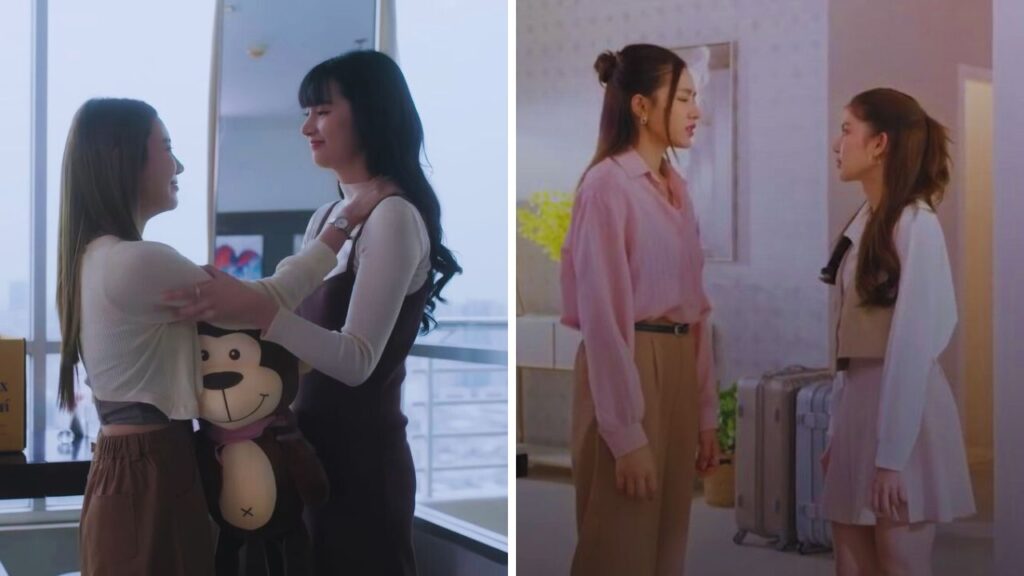
Let’s Rewrite the Pattern Together
When we look closely at GL Tropes, it’s clear that some familiar patterns have become tired. So, which GL tropes would you gladly leave behind? And which kinds of stories do you still want to see on screen?
These stories matter a lot. They shape how we see ourselves and influence how others understand our community. The power of representation comes from honest storytelling that moves beyond worn-out clichés and welcomes fresh, meaningful experiences.
Imagine a world where sapphic characters talk openly, handle challenges with maturity, and where diversity in all forms takes center stage. This is not just a dream. It is a call for both creators and fans to ask for better stories.
Your voice can start change. Share your thoughts in the comments. Which trope makes you cringe every time? Which storylines would you support right away? These conversations help guide writers toward stories that connect, inspire, and uplift.
Together, we can rewrite old patterns and create room for stories that truly show the richness and complexity of sapphic love.
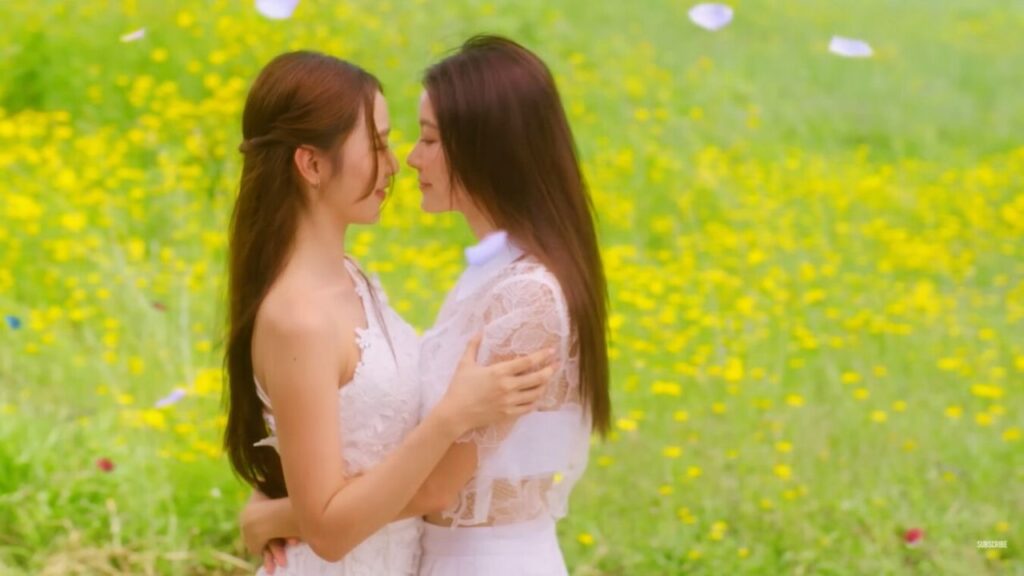
Featured image: Promotional still courtesy of Star Hunter Entertainment.



